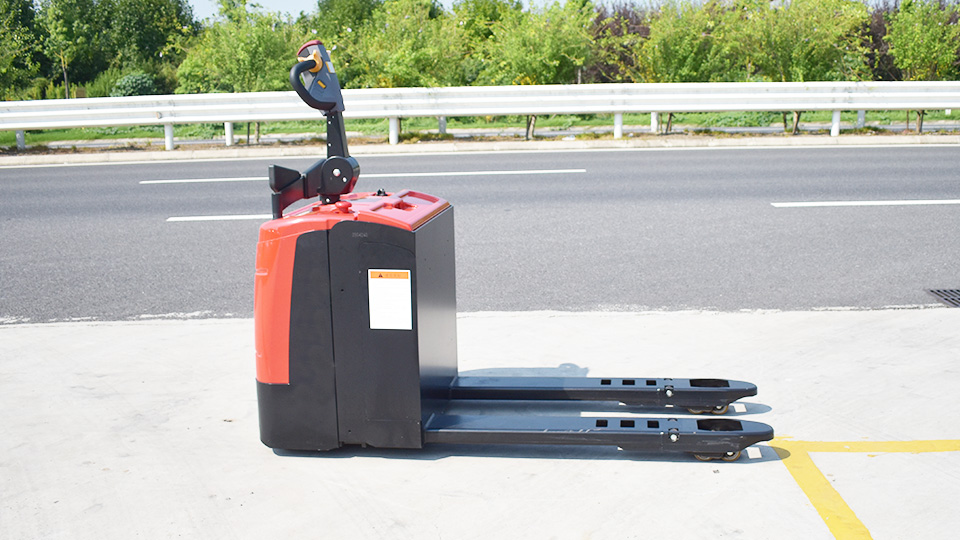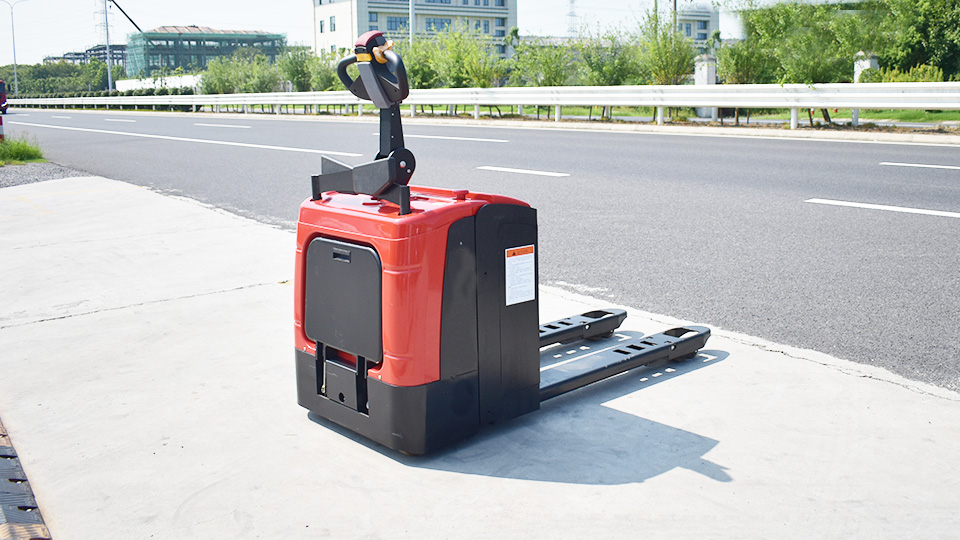
Finding the Right Foundation: A Comprehensive Guide to Selecting a Reliable Pallet Scale for Your Business
In the dynamic landscape of modern business, efficiency and accuracy are paramount. From warehousing and logistics to manufacturing and agriculture, the ability to precisely weigh goods is fundamental to inventory management, shipping accuracy, quality control, and ultimately, profitability. For businesses dealing with palletized goods, a reliable pallet scale is not merely a piece of equipment; it's a cornerstone of operational integrity.
However, navigating the vast array of pallet scales available in the market can be a daunting task. With varying capacities, features, technologies, and price points, choosing the right scale requires careful consideration of your specific business needs and operational environment. This comprehensive guide delves into the key factors to consider when seeking a reliable pallet scale, providing you with the knowledge to make an informed decision and invest in a solution that will serve your business effectively for years to come.
Understanding Your Weighing Needs: The Foundation of Your Search
Before embarking on the search for a pallet scale, it's crucial to thoroughly analyze your business's unique requirements. This initial assessment will serve as a compass, guiding you towards the scales that align with your operational demands and preventing costly mismatches. Consider the following key aspects:
1. Weight Capacity:
This is perhaps the most fundamental consideration. Overloading a scale not only leads to inaccurate readings but can also cause irreparable damage, compromising its reliability and longevity. To determine the appropriate weight capacity, consider the heaviest loads you will routinely weigh, including the weight of the pallet itself. It's prudent to choose a scale with a capacity that exceeds your typical maximum load by a comfortable margin (e.g., 20-25%) to accommodate occasional heavier items or uneven weight distribution. Pallet scales typically range in capacity from a few thousand pounds to upwards of 10,000 pounds or more.
Example: If your standard pallet loads weigh around 2,500 lbs, opting for a scale with a 5,000 lb capacity would provide a safety margin.
2. Weighing Frequency and Throughput:
How often will you be using the scale? What is the volume of goods you need to weigh within a given timeframe? Businesses with high-throughput operations may require scales with faster stabilization times and features that streamline the weighing process, such as quick tare functions and connectivity options for data logging and integration with other systems.
Example: A busy shipping department weighing dozens of pallets per hour will benefit from a scale with rapid weighing and data transfer capabilities.
3. Environmental Conditions:
The environment in which the scale will operate significantly impacts its performance and lifespan. Consider factors such as:
Temperature: Extreme temperatures can affect the accuracy of some load cells and the functionality of electronic components.
Dust and Debris: Dusty or dirty environments can interfere with the scale's mechanisms and require models with robust sealing and construction.
Moisture and Humidity: влажность can corrode metal components and damage electronic circuitry. Look for scales with appropriate IP (Ingress Protection) ratings for wet or humid environments.
Vibrations and Impacts: If the scale will be used in an area with significant vibrations from machinery or the movement of forklifts, shock-absorbing features and durable construction are essential.
4. Portability Requirements:
Do you need a stationary scale in a fixed location, or do you require the flexibility to move the scale to different areas within your facility or even transport it to different sites? Portable pallet scales with built-in ramps and handles can offer greater versatility.
5. Accuracy Requirements:
The level of accuracy required depends on the application. For general inventory checks, a standard industrial-grade scale may suffice. However, for applications involving high-value goods, legal-for-trade transactions, or strict quality control processes, a scale with higher accuracy and certification (e.g., NTEP in the US) is necessary.

6. Integration with Existing Systems:
Consider whether you need the scale to integrate with other business systems, such as inventory management software, shipping platforms, or barcode scanners. Connectivity options like RS-232, USB, or Ethernet can facilitate seamless data transfer and improve overall efficiency.
Exploring Different Types of Pallet Scales:
Once you have a clear understanding of your weighing needs, you can begin to explore the various types of pallet scales available:
1. Floor Scales (Platform Scales):
These are the most common type of pallet scale, consisting of a low-profile platform placed directly on the floor. Pallets are typically loaded onto the platform using a forklift or pallet jack. Floor scales are known for their robustness, high capacity, and relatively straightforward operation.
Pros: High capacity, durable, relatively affordable.
Cons: Requires floor space, may not be ideal for very high throughput without additional automation.
2. U-Shaped Pallet Scales:
Designed to accommodate the forks of a pallet jack, U-shaped scales allow for easy weighing without the need for the jack to fully maneuver onto a platform. This can save time and space in certain applications.
Pros: Space-saving, convenient for pallet jack use.
Cons: May have lower capacity compared to full platform scales, can be less stable with unevenly loaded pallets.
3. Weigh Beams (Load Beams):
These consist of two or more separate weighing beams that are placed under the skids of a pallet. They offer flexibility in terms of platform size and can be more portable than full platform scales.
Pros: Portable, adaptable to different pallet sizes.
Cons: Can be less stable, requires careful placement for accurate weighing.
4. Portable Pallet Scales:
These scales are designed with mobility in mind, often featuring wheels, handles, and lightweight construction. They are ideal for businesses that need to weigh goods in different locations.
Pros: Highly portable, convenient for multiple weighing locations.
Cons: May have lower capacity and durability compared to stationary scales.
5. Integrated Pallet Jack Scales:
These combine the functionality of a pallet jack with a weighing mechanism. They allow for weighing goods as they are being moved, potentially streamlining workflows.
Pros: Space-saving, efficient for weighing during transport.
Cons: Typically lower capacity, may be less accurate than dedicated scales, requires operator training.
Key Features to Look For in a Reliable Pallet Scale:
Beyond the basic type, several features contribute to the reliability, accuracy, and usability of a pallet scale:
Robust Construction: Look for scales made from high-quality materials like heavy-duty steel with a durable finish to withstand the rigors of industrial use.
High-Quality Load Cells: Load cells are the sensors that measure the weight. Choose scales with reputable brand load cells known for their accuracy and stability. Consider the type of load cell (e.g., strain gauge, hydraulic) based on your environmental conditions and accuracy requirements.

Clear and User-Friendly Indicator: The indicator displays the weight and often provides additional functions like tare, zero, and unit conversion. A large, backlit display and intuitive keypad are essential for ease of use.
Overload Protection: A crucial safety feature that prevents damage to the load cells when the scale is accidentally overloaded.
Non-Slip Surface: Ensures the pallet remains stable during weighing, improving safety and accuracy.
Adjustable Feet: Allow for leveling the scale on uneven surfaces, ensuring accurate readings.
Power Options: Consider whether you need a mains-powered scale, a battery-powered option for portability, or both.
Connectivity Options: As mentioned earlier, RS-232, USB, or Ethernet ports enable data transfer and integration with other systems.
Legal-for-Trade Certification (NTEP, OIML): If you are buying or selling goods based on weight, ensure the scale has the necessary legal-for-trade certification in your region.
Calibration and Maintenance: Understand the calibration requirements and ensure the scale is easy to calibrate and maintain.
Where to Find Reliable Pallet Scales: Navigating the Market
Now that you have a clear understanding of your needs and the types of scales available, the next step is to identify reliable sources for purchasing. Here are several avenues to explore:
1. Reputable Scale Manufacturers:
Purchasing directly from a well-established scale manufacturer often provides the best assurance of quality, reliability, and after-sales support. Manufacturers typically offer a wide range of models, customization options, and expert advice to help you choose the right scale for your application. They also often provide calibration, maintenance, and repair services.
Considerations: Research manufacturers with a long history of producing industrial-grade weighing equipment and positive customer reviews.
2. Industrial Equipment Suppliers:
Many industrial equipment suppliers specialize in providing a variety of tools and machinery, including pallet scales. These suppliers often carry scales from multiple manufacturers, offering a broader selection and potentially competitive pricing.
Considerations: Choose suppliers with a strong reputation for quality products and knowledgeable sales staff who can help you compare different models.
3. Weighing Equipment Distributors:
Distributors focus specifically on weighing equipment and often have in-depth knowledge of different scale types and brands. They can provide valuable insights and support in selecting the right scale for your needs.
Considerations: Look for distributors who are authorized dealers for reputable manufacturers and offer local support and service.
4. Online Marketplaces (with Caution):
While online marketplaces can offer a wide selection and competitive prices, it's crucial to exercise caution when purchasing industrial equipment like pallet scales from these platforms. It can be challenging to assess the quality and reliability of products and vendors without physical inspection and direct interaction.
Considerations: Prioritize sellers with high ratings, detailed product specifications, and clear warranty information. Be wary of significantly lower prices, as they may indicate lower quality or lack of support.
5. Local Weighing Equipment Service Companies:
Local companies that specialize in weighing equipment sales and service can be a valuable resource. They often have firsthand experience with different scale brands and models used in your region and can provide tailored recommendations and ongoing support.
Considerations: Look for companies with certified technicians who can provide installation, calibration, and repair services.
Evaluating Potential Suppliers:
Once you have identified potential suppliers, it's essential to evaluate them based on several factors:
Reputation and Experience: How long has the company been in business? What is their track record for providing reliable equipment and customer support? Check online reviews and ask for references.
Product Quality and Certifications: Do they offer scales from reputable manufacturers? Are their scales certified to relevant industry standards (e.g., NTEP, OIML)?
Warranty and Support: What is the warranty period offered on the scale? What kind of technical support is available? Do they offer installation, calibration, and repair services?
Pricing and Value: While price is a consideration, focus on the overall value proposition, including the quality, features, and support offered. A slightly more expensive, reliable scale can save you significant costs in the long run due to reduced downtime and maintenance.
Lead Time and Delivery: What is the estimated lead time for the scale you need? What are the shipping costs and delivery options?
Asking the Right Questions:
When contacting potential suppliers, be prepared to ask specific questions about their pallet scales, including:
What is the weight capacity and accuracy of this model?
What materials is the scale constructed from?
What is the IP rating of the scale?
Does it have overload protection?
What connectivity options are available?
Is it legal-for-trade certified?
What is the warranty period?
Do you offer installation, calibration, and repair services?
What is the lead time and cost of delivery?
Making the Informed Decision:
By carefully considering your business needs, exploring the different types of pallet scales available, evaluating key features, and thoroughly researching potential suppliers, you can make an informed decision and invest in a reliable pallet scale that will contribute to the efficiency and accuracy of your operations for years to come. Remember that a pallet scale is not just an expense; it's an investment in the foundation of your business's success. Take the time to find the right foundation, and your business will reap the rewards of accurate and efficient weighing.
Name: selena
Mobile:+86-13176910558
Tel:+86-0535-2090977
Whatsapp:8613181602336
Email:vip@mingyuforklift.com
Add:Xiaqiu Town, Laizhou, Yantai City, Shandong Province, China